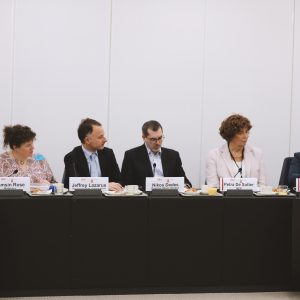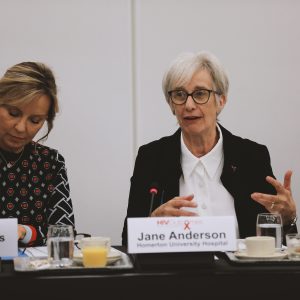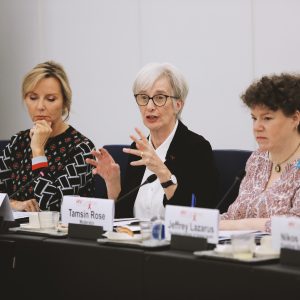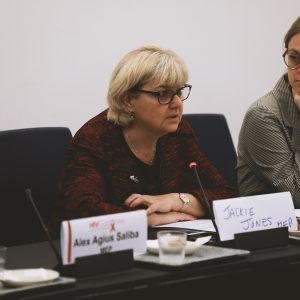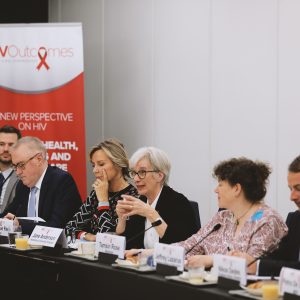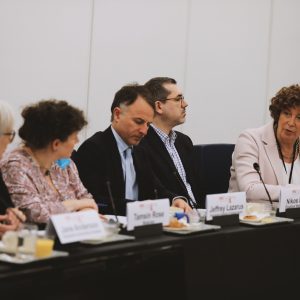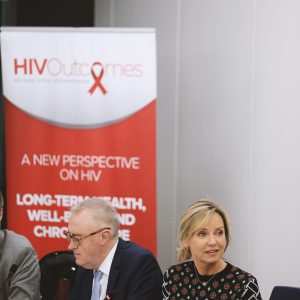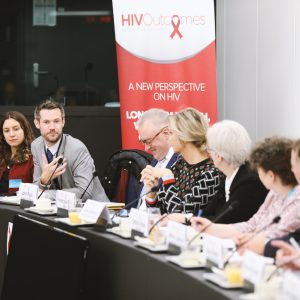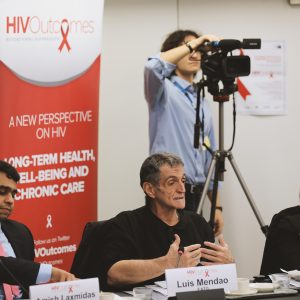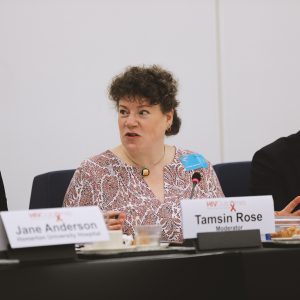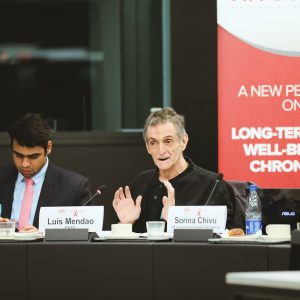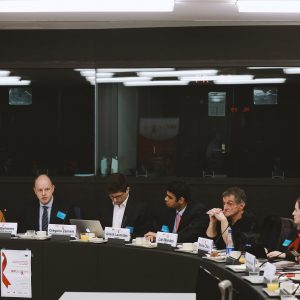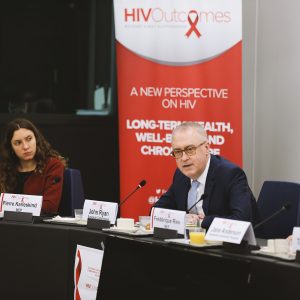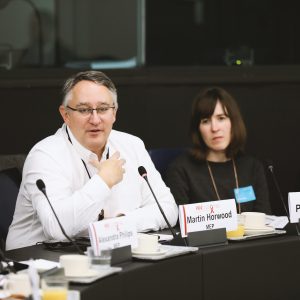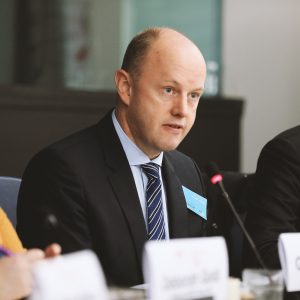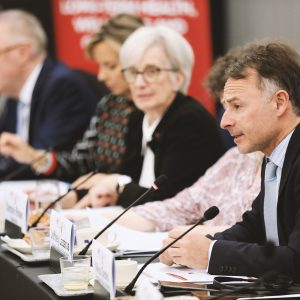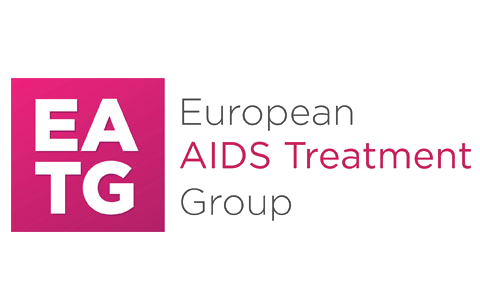Delivering on political commitments to tackle HIV in Europe

Event Details
| Date / Time | 26 November at 8.00am to 26 November at 10.00am |
| Venue | European Parliament, 1 Allée du Printemps, 67070 Strasbourg, France Map |
| Contact | HIV Outcomes Secretariat |
Event Report
Hope that new European Parliament will bring fresh momentum to HIV policy
HIV has fallen off the EU’s political agenda but MEPs, patients, clinicians and academics put the spotlight on long-term health and well-being of people living with HIV at a HIV Outcomes roundtable event in Strasbourg
European policy makers can play an active role in improving the lives of people living with HIV by helping to tackle stigma and discrimination, supporting research on health outcomes and quality of life, and shifting the focus towards long-term well-being.
However, HIV has slipped down the list of EU health policy priorities in recent years and efforts are need to address the current reality: people with HIV are living long and active lives, but this has brought new challenges which must be reflected in European and national policies.
These were among the recurring themes at a well-attended HIV Outcomes roundtable discussion held in the European Parliament on 26 November. The event was hosted by a cross-party group of MEPs: Frédérique Ries (Renew Europe, Belgium), Cristian Bușoi (European People’s Party, Romania), Sara Cerdas (Socialists & Democrats, Portugal) and Petra De Sutter (Greens, Belgium).
As the EU enters a new political cycle – with a new intake of MEPs and the European Commission taking office – the event was an ideal opportunity to engage with those shaping the health policy agenda for the next five years.
New Year’s Resolution?
The strong attendance and engagement of MEPs illustrated their willingness to add new momentum to EU policy in this area. Several participants raised the possibility of a European Parliament initiative to address the long-term health needs and quality of life of people with HIV – including issues arising from living with co-morbidities and mental health challenges. There was also particular interest in measures that the EU could take to tackle stigma and discrimination.
The need for a robust evidence base on which to build policy was emphasised, with some MEPs suggesting that the European Parliament Research Services conduct a study on the needs of people with HIV in the long-term. It was also noted that the European Centre for Disease Prevention and Control (ECDC) should be further empowered to monitor quality of life measures, along with its existing role collating data on HIV incidence.
One of the challenges for HIV Outcomes is the breadth of policy areas at EU level which can affect the lives of people living with HIV. This was echoed by several contributors who highlighted the need to engage on policy at EU level around common co-morbidities for example, cancer. In addition, MEPs expressed a willingness to take the conversation beyond the Parliament’s committee responsible for Health (ENVI), and to work with committees on Women’s Rights and Gender Equality (FEMM) and on Development (DEVE). The limits of EU action in this area was also noted, as Member States are responsible for the management of healthcare.
Accelerating progress
While HIV policy at EU level needs to be reinvigorated, and more evidence is needed on long-term well-being for people living with the condition, MEPs are not starting from scratch. HIV Outcomes has developed key recommendations and a compendium of good practices, and engaged with European and national stakeholders to accelerate progress in this area.
A new report sharing insights from Germany and Romania, where the HIV Outcomes recommendations were road-tested in 2019, was also launched at the event. This adds to the publication of the 2018 report on Italy and Spain, helping to translate recommendations into real-world actions in European countries.
A HIV Outcomes ‘Call to Action’ was also launched at the roundtable. It calls for political leadership to ensure that the long-term health outcomes and quality of life of people living with HIV are high on the political agenda and that Europe delivers on its commitment to tackle communicable diseases.
The event also saw the launch of ‘The Lancet HIV Series on HIV Outcomes Beyond Viral Suppression’. The Series looks at health-related quality of life measures, patient reported outcomes, and how stigma can undermine the well-being of people living with HIV. The Series was led and guest edited by HIV Outcomes Co-Chairs Jeffrey Lazarus and Jane Anderson together with steering group member Georg Behrens of Hannover Medical School – who also represents the European AIDS Clinical Society on HIV Outcomes’ steering group – and Teymur Noori from the ECDC – an observer to HIV Outcomes’ steering group.
The welcome support of MEPs in prioritising HIV and shifting the focus to long-term health outcomes and quality of life could mark the opening of a new chapter in European HIV policy. Action from the European Parliament, matched with support from the European Commission, European Council and Member States, could help to deliver measurable improvements for people in Europe living with HIV.
-
Downloads



